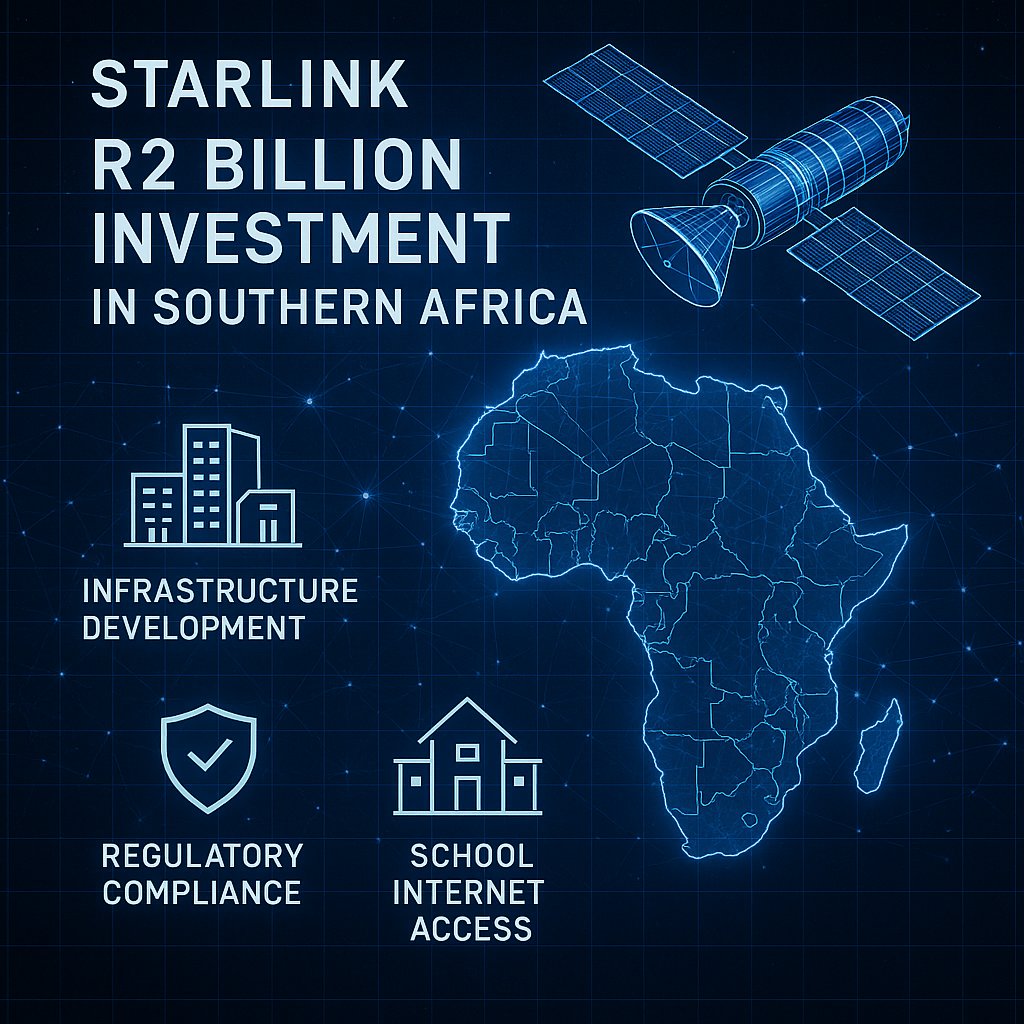Image created by AI
Starlink’s R2bn Leap into Southern Africa: A Technological Boon Amid Regulatory Hurdles
Elon Musk's satellite internet venture, Starlink, has earmarked a substantial R2 billion investment for Southern Africa, aimed at revolutionizing internet access across the region. This initiative is not just a technological investment but also an economic maneuver that addresses local regulatory frameworks head-on, notably South Africa’s Black Economic Empowerment (BEE) regulations.
Starlink plans to extend its services beyond South African borders to benefit the entire Southern African Development Community (SADC), which includes 16 countries. The investment is intended for significant infrastructure development, including the leasing of land, enhancements in fibre connectivity, and ensuring sustainable power supply and security systems. These developments will be orchestrated through partnerships with South African companies, thereby cleverly navigating the BEE equity partnership requirements without compromising on ownership.
The move by the Cape Town-born billionaire's company has generated considerable discourse, especially regarding BEE policies which Musk has critiqued as racially biased. Despite these claims, the South African government, under Communications and Digital Technologies Minister Solly Malatsi, has shown flexibility. The minister's office is spearheading policy revisions that might allow satellite service providers like Starlink to fulfill BEE requirements through alternative methods such as direct investment into Black-owned businesses or infrastructure.
This policy shift is crucial as it aligns with Malatsi’s vision of fueling tangible investments in marginalized communities within South Africa. His department is instrumental in influencing how the Independent Communications Authority of South Africa (ICASA) formats its licensing criteria, a decisive factor in whether Starlink secures an operational foothold in the region.
Starlink's strategy includes a notable commitment to societal development—pledging R500 million towards providing free internet to 5,000 schools across South Africa, impacting approximately 2.4 million schoolchildren. This initiative is part of what Starlink terms its "Equity Equivalence" program, illustrating an innovative approach to meet regulatory requirements while pushing for broader societal benefits.
With the G20 Summit in Johannesburg on the horizon in November, Starlink is keen to finalize these negotiations, showcasing a significant technological leap that could place South Africa at the forefront of the digital economy on an international stage.
Starlink’s proposed model could set a precedent for how global tech companies engage with South African regulatory frameworks, potentially ushering in a new era of digital inclusivity that reaches rural and underserved communities. Such connectivity advancements are expected to catalyze economic opportunities and educational advancements across Southern Africa.










